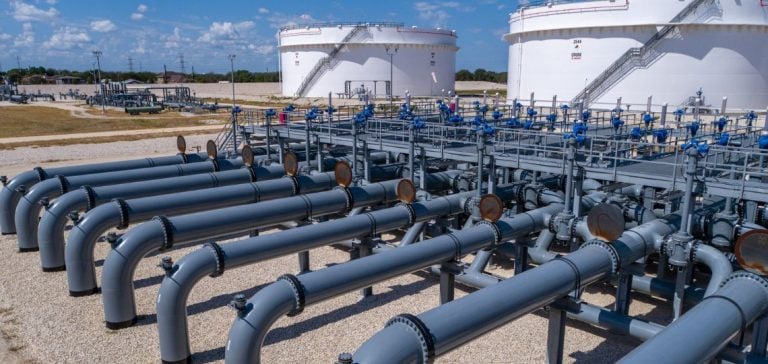Diamondback Energy and Kinetik Holdings have jointly acquired a 30% interest in the EPIC Crude pipeline, a major 700-mile infrastructure linking the Delaware, Midland and Eagle Ford basins to the Gulf Coast . EPIC Crude, in service since 2020, is a key element in the transportation of crude oil from the Permian Basin. By strengthening their control over this strategic infrastructure, Diamondback and Kinetik aim to optimize profitability and meet the growing demand for crude oil transportation infrastructure.
The Robstown terminal, a key connection point, offers operational storage capacity of 7.5 million barrels, facilitating oil exports to international markets.
The acquisition enables both companies to secure their supply chain, while benefiting from a modern infrastructure that can be expanded up to 1 million barrels per day.
An increase in transport commitments
In addition to this acquisition, Diamondback has strengthened its commitment by increasing the volumes transported via EPIC Crude to 200,000 barrels per day.
This increase is the result of the recent acquisition of Endeavor Energy Resources, which has propelled Diamondback to become the third largest oil producer in the Permian Basin.
This enables the company to better manage its increased production and optimize logistics costs.
Kinetik, meanwhile, has signed new transportation agreements with EPIC Crude and connected its own crude gathering system to the pipeline.
These long-term commitments, which extend to 2035, represent over 33% of EPIC Crude’s total capacity and guarantee a stable flow of oil to Gulf Coast refineries.
Sector context and competitive dynamics
The US energy sector is experiencing a wave of consolidation, particularly in the Permian Basin, with acquisitions exceeding $250 billion by 2023.
This trend continues into 2024, as companies seek to maximize the efficiency of their operations by vertically integrating transmission infrastructures.
For Diamondback and Kinetik, control of a significant share of EPIC Crude’s capacity enables them to secure their crude oil flows to the international market via Corpus Christi, while reducing their transportation costs.
In a market marked by fluctuations in global energy demand, the ability to export quickly and efficiently is a major competitive advantage.
EPIC Crude enables both companies to diversify their distribution channels and reach markets more flexibly.
Midstream infrastructure outlook
EPIC Crude stands out for its flexibility, with the ability to expand thanks to minimal investment, mainly in additional pumps.
This enables a rapid increase in transport capacity to meet growing market needs.
With its modern infrastructure and connection to the Port of Corpus Christi, EPIC Crude offers Diamondback and Kinetik additional logistical flexibility, particularly for oil exports.
The acquisition also offers better management of logistical contingencies thanks to significant storage capacity.
In addition, the EPIC pipeline is one of the last opportunities for large-scale economic expansion in the Permian Basin, making it a strategic asset for both companies over the long term.






















